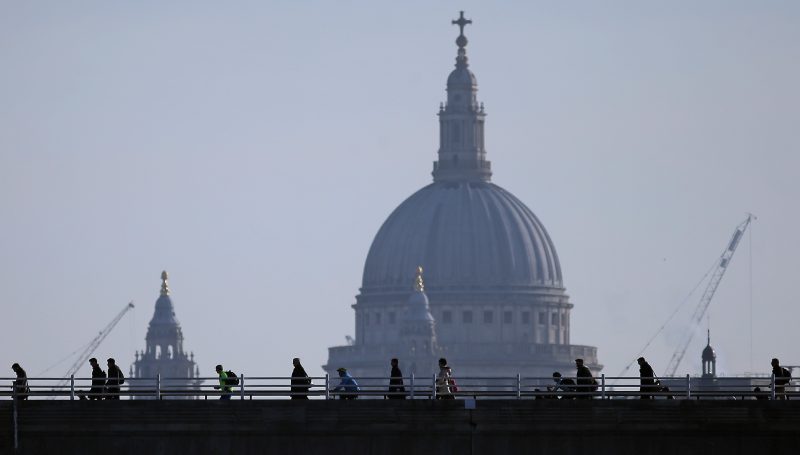UK unemployment rate hits 45-year low
Britain’s unemployment rate has dropped to the lowest level since 1974 (Daniel LEAL-OLIVAS)
London (AFP) – British unemployment has fallen to a 45-year low, official data showed Tuesday, with the economy holding up despite prolonged Brexit uncertainty.
The unemployment rate eased to 3.8 percent in the three months to March — the lowest level since the final quarter of 1974, the Office for National Statistics (ONS) said in a statement.
That compared with a 44-year low of 3.9 percent in the quarter to February.
“The UK labour market has been remarkably resilient in the face of Brexit-related uncertainty,” Hargreaves Lansdown senior economist Ben Brettell said in reaction to the latest data.
“These are really strong numbers given the headwinds the economy is currently facing.”
The ONS added that the UK employment rate was estimated at 76.1 percent, which was the joint-highest figure on record.
However the strong jobs figures were not necessarily translating into higher productivity, analysts noted.
“There are valid concerns that UK firms are hoarding labour instead of much-needed capital expenditure,” said Brettell.
“Why would you invest large sums in new plant or machinery in such uncertain times, when you could hire an extra worker and get broadly the same result?”
The ONS added that growth in average weekly earnings, including bonuses, slowed to 3.2 percent in the three months to March.
And they increased by only 1.3 percent when adjusted for inflation, down from 1.6 percent in the three months to February.
“This is unwelcome news for hopes that the consumer can keep spending at a robust rate over the summer and help the economy weather prolonged Brexit uncertainties and a challenging global economic environment,” said EY ITEM Club economist Howard Archer.
The unemployment data coincided with the release of a major study by a think tank showing that income inequality in the UK is higher than in every other major economy, except the United States.
The Institute for Fiscal Studies noted that the UK has experienced “a decade of stagnant wages and there is recent evidence that ‘deaths of despair’ — deaths from suicide and drug and alcohol abuse — are now rising among middle-aged Britons”.
The IFS stated that “great inequalities… risk disrupting both our democracy and our prosperity”.
Disclaimer: Validity of the above story is for 7 Days from original date of publishing. Source: AFP.


